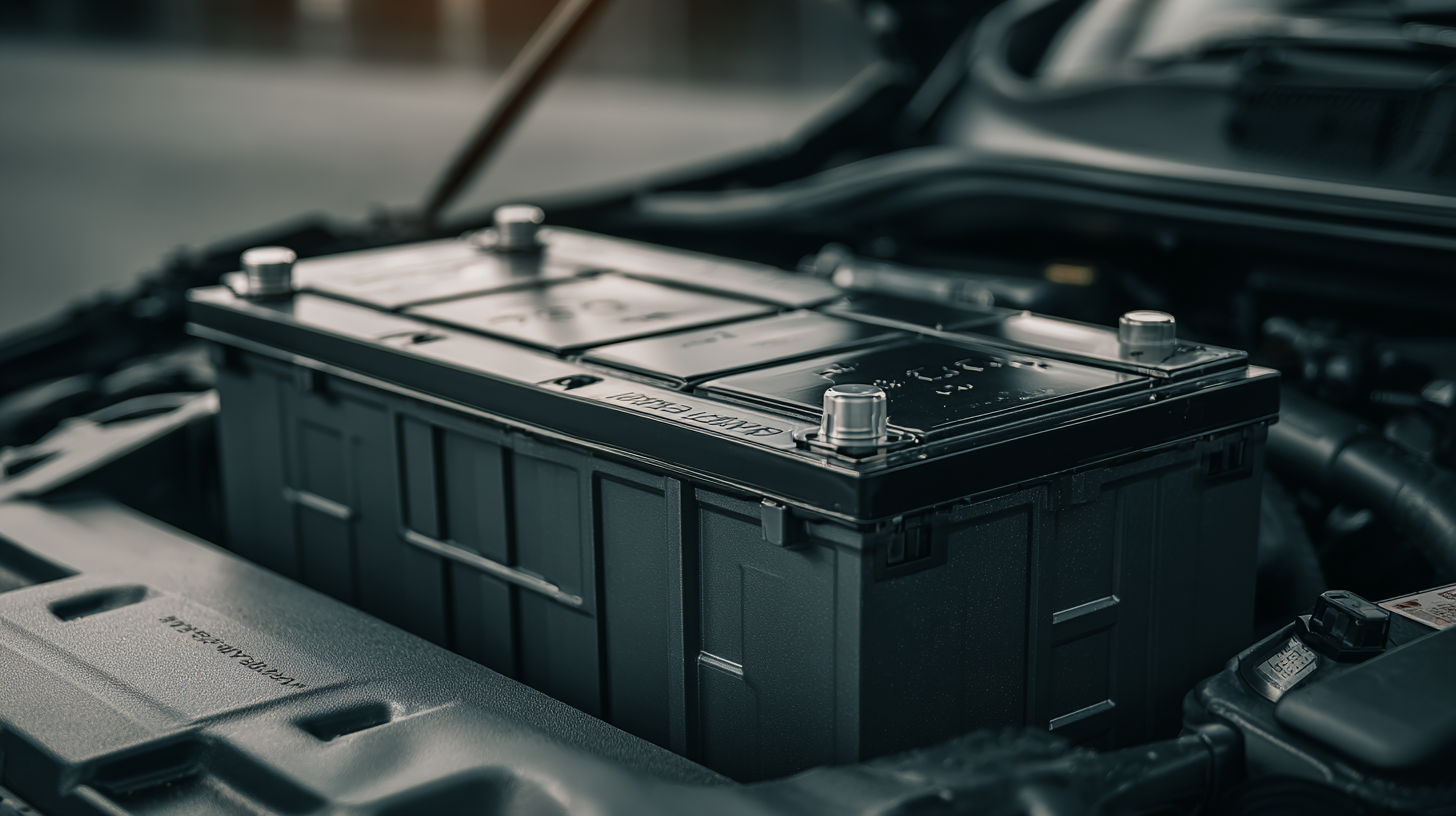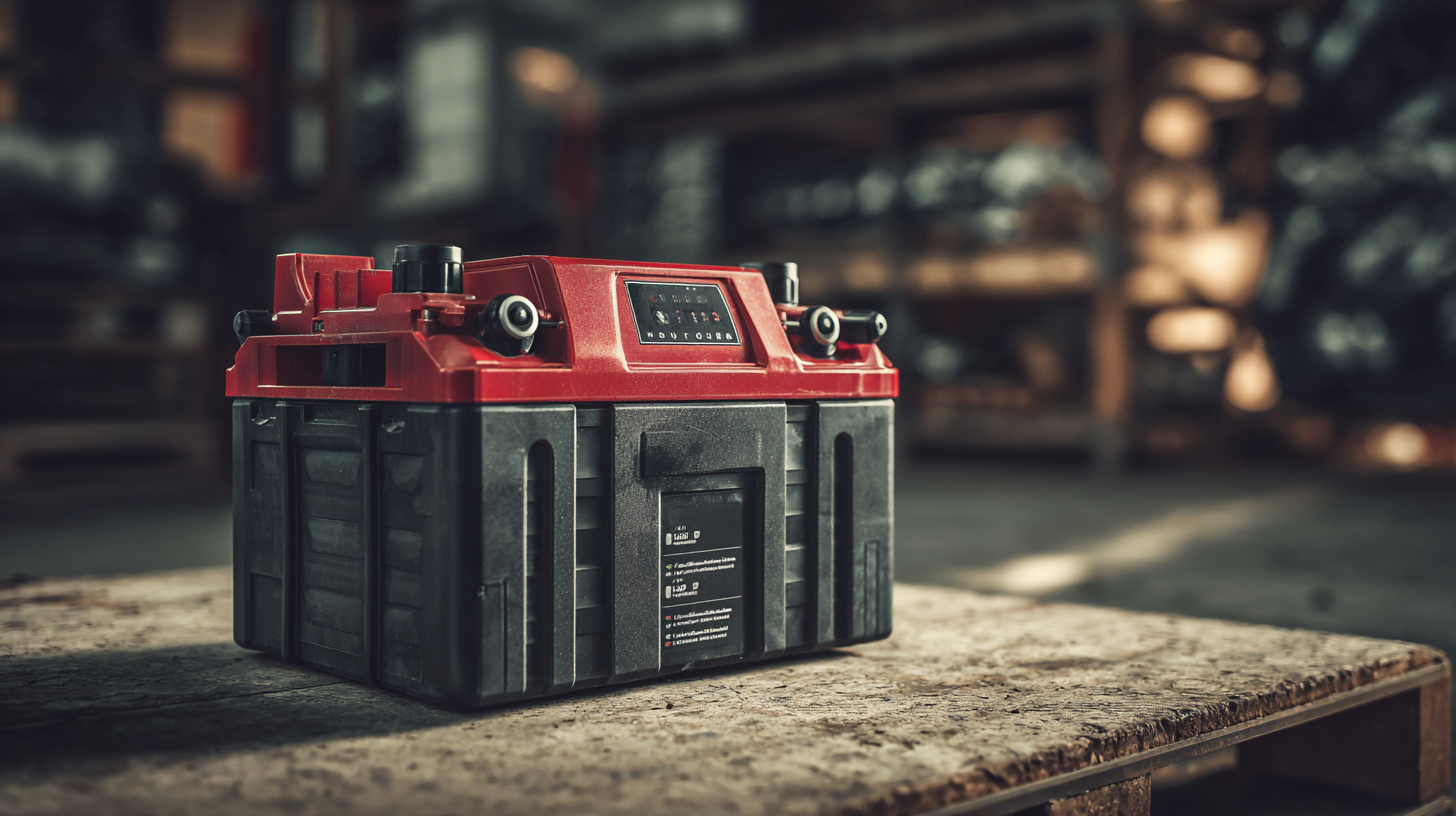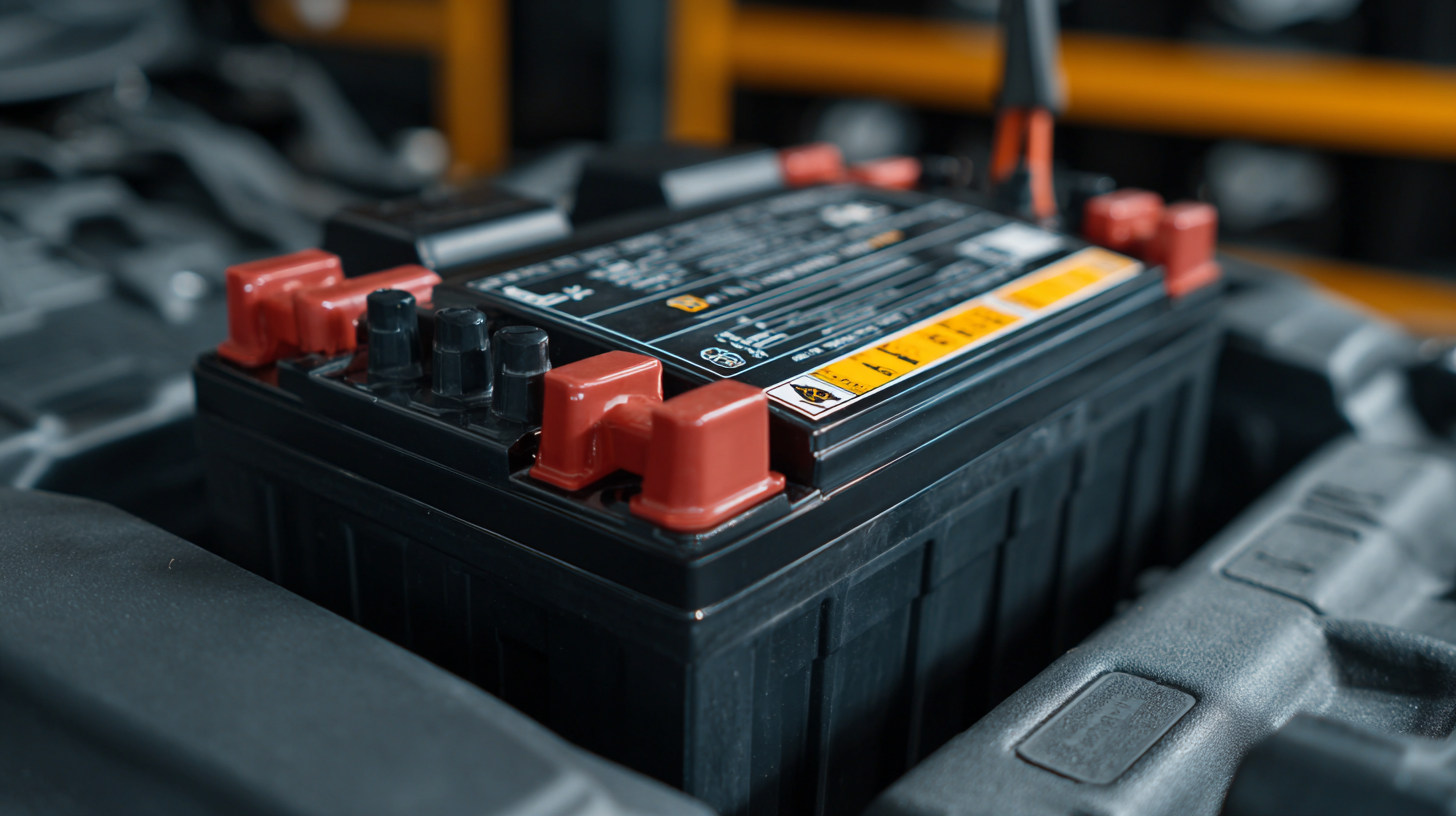What Makes the Best Deep Cycle Car Battery Stand Out in Performance
When it comes to choosing the best deep cycle car battery, understanding what sets high-performing batteries apart is crucial for optimal vehicle efficiency and longevity. According to a recent report by MarketWatch, the deep cycle battery market is projected to grow steadily, with an increasing demand for reliable energy solutions in automotive applications.

Deep cycle car batteries, designed specifically to deliver sustained power over long periods, outperform traditional car batteries by offering better depth of discharge and cycle life ratings. The key to superior performance lies not only in advanced lead-acid design but also in the use of cutting-edge technologies such as lithium-ion alternatives. By analyzing factors such as capacity, recharge time, and durability, consumers can make informed choices that enhance their driving experience and extend battery lifespan.
This blog aims to explore the essential elements that distinguish the best deep cycle car battery, providing valuable tips for selection and maintenance.
Key Features of High-Performance Deep Cycle Car Batteries
When it comes to deep cycle car batteries, several key features set high-performance models apart from the rest. The first crucial aspect is the battery's capacity, typically measured in amp-hours (Ah). This rating indicates how well the battery can deliver sustained power over time, making it essential for applications requiring a steady energy supply. Opting for a battery with a higher capacity ensures longer usage periods between charges, which is ideal for recreational vehicles, boats, or solar energy systems.
Another significant feature to consider is the construction material and design. Deep cycle batteries that use advanced lead-acid technologies or lithium-ion craftsmanship provide better efficiency and cycle life. Batteries with enhanced durability tend to withstand more discharge cycles, ensuring longevity and reliability.
Tip: When choosing a battery, look for specialized features such as a built-in battery management system (BMS) that optimizes performance and protects against overcharging.
Additionally, consider the thermal regulation capabilities of a battery. High-performance deep cycle batteries often incorporate design elements that prevent overheating, allowing them to operate efficiently in various climates. This is especially important for users who drive in extreme weather conditions.
Tip: Always check manufacturer warranties as they reflect the product's reliability and the manufacturer's confidence in their battery’s performance.

Understanding the Importance of Industry Import and Export Certifications
When selecting the best deep cycle car battery, understanding the importance of industry import and export certifications is crucial. These certifications act as a benchmark for quality, safety, and reliability, ensuring that the battery meets international standards. Batteries that come with recognized certifications are typically subjected to rigorous testing processes, which guarantees that they can perform effectively under various conditions.
Tips: Always look for batteries that have certifications from well-known organizations such as UL, CE, or ISO. This not only assures you of the battery's quality but also helps in avoiding potential risks associated with substandard products. Additionally, consider sourcing batteries from manufacturers or suppliers who are transparent about their certification processes.
Furthermore, the import and export certifications can indicate a manufacturer’s commitment to environmental regulations and sustainable practices. This is increasingly important for consumers who are looking to make environmentally conscious choices.
Tips: Check the manufacturer's website for details on their certifications and environmental policies. Engaging with customer reviews can also provide insights into how well a battery performs in real-world scenarios, thus guiding you towards making an informed decision.
What Makes the Best Deep Cycle Car Battery Stand Out in Performance - Understanding the Importance of Industry Import and Export Certifications
| Battery Type | Capacity (Ah) | Voltage (V) | Cycle Life (Cycles) | Certification | Weight (kg) |
|---|---|---|---|---|---|
| AGM | 100 | 12 | 800 | UL, CE | 30 |
| Gel | 120 | 12 | 500 | ISO, CE | 36 |
| Lithium-ion | 150 | 12 | 2000 | UN, IEC | 25 |
| Flooded Lead Acid | 105 | 12 | 600 | CSA, CE | 32 |
Comparing Different Certifications and Their Impact on Battery Quality
Deep cycle car batteries are essential for various applications, from powering RVs to running marine systems, and the quality of these batteries often hinges on their certifications. In the industry, certifications such as the BCI (Battery Council International) and ISO (International Organization for Standardization) serve as benchmarks reflecting a battery's performance, safety, and reliability. According to a report by the National Renewable Energy Laboratory, batteries that meet ISO 9001 standards exhibit an efficiency of up to 98%, significantly outperforming non-certified options. This efficiency directly translates into longer operational life and reliability, making certification a crucial consideration for consumers.
Moreover, the CCA (Cold Cranking Amps) rating is another vital metric when evaluating deep cycle car batteries. A study by the Battery Performance Consortium indicates that batteries with high CCA ratings—certified by the Society of Automotive Engineers—provide superior starting power in extreme temperatures, which is crucial for users in colder climates. Batteries with a CCA rating above 800 have been shown to outperform their peers in both lifespan and performance, further underscoring the importance of adhering to industry certifications. Thus, when selecting a deep cycle battery, it's essential to consider these certifications to ensure optimum performance and durability.
How Certification Standards Affect Battery Longevity and Reliability
When it comes to deep cycle car batteries, the significance of certification standards cannot be overstated. These certifications, such as those from the Underwriters Laboratories (UL) and the American National Standards Institute (ANSI), provide consumers with assurance regarding the quality and safety of the battery. A battery that meets these standards has undergone rigorous testing for performance and durability, ensuring that it can withstand the demands of deep cycling. This level of scrutiny helps minimize the risk of unexpected failures, providing peace of mind to users who rely on their batteries for critical applications like RVs and marine vehicles.

Moreover, adherence to certification standards often correlates with enhanced longevity and reliability of the battery. Batteries built to these high standards are typically crafted with superior materials and engineering practices, resulting in better overall performance. For instance, a deep cycle battery that is certified may exhibit improved resistance to sulfation, a common issue that leads to decreased battery life. By understanding the importance of these certifications, consumers can make informed choices that not only enhance the performance of their deep cycle batteries but also maximize their investment over time.
The Role of Regulatory Bodies in Ensuring Battery Performance Standards
The role of regulatory bodies in ensuring battery performance standards is pivotal as the global demand for efficient energy storage continues to rise. As outlined in recent discussions around green transitions, governments are increasingly adopting policies that not only incentivize the production of advanced battery technologies but also ensure adherence to stringent performance and safety standards. Regulations such as the EU Deforestation Regulation, which will come into effect at the end of 2024, underscore the need for manufacturers to comply with environmental guidelines, thereby promoting sustainable battery production processes.
Moreover, safety standards for lithium-ion batteries, especially in emerging applications like electric vehicles and e-bikes, are critical. Establishing statutory guidelines helps mitigate risks associated with thermal runaway and other safety concerns, contributing to consumer confidence and market growth. By mandating rigorous testing and certification processes, regulatory bodies can foster innovation while ensuring that the best deep cycle car batteries on the market meet superior performance metrics, ultimately driving the electrification of transportation and facilitating a greener future.
